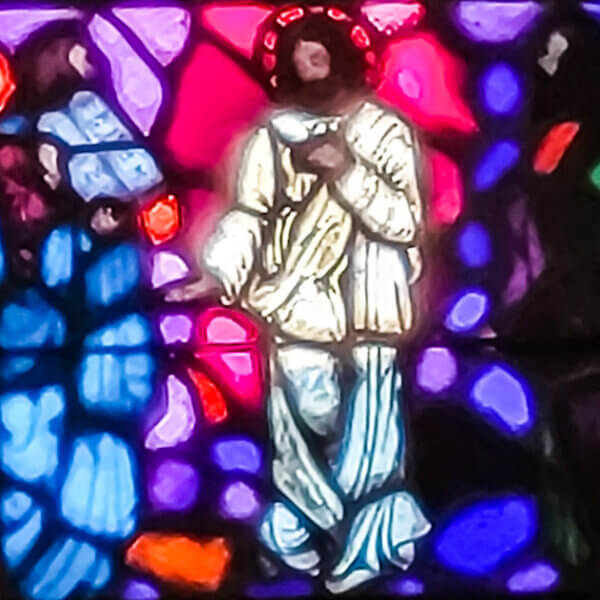
On Reconciling Communities
15“If another member of the church sins against you, go and point out the fault when the two of you are alone. If the member listens to you, you have regained that one. 16But if you are not listened to, take one or two others along with you, so that every word may be confirmed by the evidence of two or three witnesses. 17If the member refuses to listen to them, tell it to the church; and if the offender refuses to listen even to the church, let such a one be to you as a Gentile and a tax collector.18Truly I tell you, whatever you bind on earth will be bound in heaven, and whatever you loose on earth will be loosed in heaven. 19Again, truly I tell you, if two of you agree on earth about anything you ask, it will be done for you by my Father in heaven. 20For where two or three are gathered in my name, I am there among them. —Matthew 18:15-20
Most of what we know about the early church comes from the New Testament epistles, particularly those written by Paul, or attributed to him. The Greek word they use is ekklēsia which means a gathering or assembly. In all of Jesus’ teachings to the disciples and wider community, he only spoke twice in the gospels about ekklēsia, the communities gathered to worship. Both are in Matthew, including today’s reading.
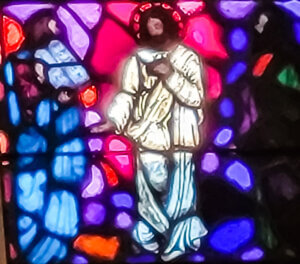 Though Jesus’ message is short, it is fundamental to our common life. Jesus allows that it may not be possible for two disputing people to resolve their issue; but he insists that we try, and lays out a process for us to follow.
Though Jesus’ message is short, it is fundamental to our common life. Jesus allows that it may not be possible for two disputing people to resolve their issue; but he insists that we try, and lays out a process for us to follow.
Jesus doesn’t specify what “sin” might be at the heart of the original disagreement. It might be breaking of one of the ten commandments listed by Paul in our reading from Romans (13:9)—by theft, adultery, or murder—or might be something less serious. However, when two people stubbornly fail to resolve their issue, it falls under the all-embracing commandment that Paul was preaching there: “Love your neighbor as yourself.”
If we refuse to listen to someone, refuse to attempt to compromise or to become reconciled to another person, we are refusing to love him or her as much as we love ourselves. Let me put that more personally: If I refuse to listen to someone, refuse to attempt to compromise or to become reconciled to another person, I am refusing to love him or her as much as I love myself. Ouch!
Failure to Resolve Conflict
There is nothing more destructive to human society than the failure to face and resolve conflict. As Pastor Karl Jacobson wrote, “We simply don’t know how to live together, fight together, and stay together. And this is because we, all of us — and not just our brother or sister — are sinners.”
The early Christians to whom Paul wrote, we all are sinners. Our lives are completely different from theirs, but what we share with them is failings as human beings. That is why these scriptures are as timeless as the Ten Commandments. They speak to the truth of the human condition.
Jesus knew that conflict between two individuals can spread to the congregation and far beyond. American history bears that out: during the Civil War, several Christian denominations spilt over the issue of slavery. Twenty years ago or so, the Episcopal Church lost some congregations—and, for a while, at least one diocese–over the ordination of gay people and the blessing of same-sex unions. Those conflicts are still playing out today in other denominations.
American Democracy
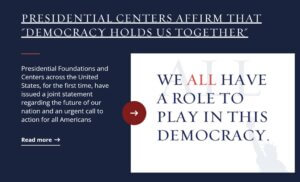 Now, much more dangerously, political disagreements nationwide have created a crisis of trust in the integrity of elections and in the Rule of Law. This is so serious that on Thursday the George W. Bush Presidential Foundation lead twelve other presidential foundations issuing a shared statement of their concern about the health of American democracy. (You can find that document on bushcenter.org or here https://www.bushcenter.org/publications/reaffirming-americans-commitment-to-a-more-perfect-union?utm_source=substack&utm_medium=email)
Now, much more dangerously, political disagreements nationwide have created a crisis of trust in the integrity of elections and in the Rule of Law. This is so serious that on Thursday the George W. Bush Presidential Foundation lead twelve other presidential foundations issuing a shared statement of their concern about the health of American democracy. (You can find that document on bushcenter.org or here https://www.bushcenter.org/publications/reaffirming-americans-commitment-to-a-more-perfect-union?utm_source=substack&utm_medium=email)
Breaking with all tradition by commenting on politics, they wrote urging us—among other things—”to engage in civil dialogue.”
Called to Love
Jesus called us to much more than civility. We are called to love—love of neighbor, love of enemy. We are called to promote the reconciliation of all peoples to God and to one another. We can do that individually by attending carefully and lovingly to one relationship, one misunderstanding, one disagreement at a time.
And we can do the same here, together. This congregation is healthy because it has done the hard work of resolving conflict before. There is a foundation of trust here that can help members have the courage to deal with conflict maturely, to face one another individually or with a mediator to resolve disagreements.
That process was Jesus’ gift to the church. When we follow it faithfully, trusting in God “with all of our hearts,” (Collect for today) Jesus assured us that God’s reconciling presence is with us.
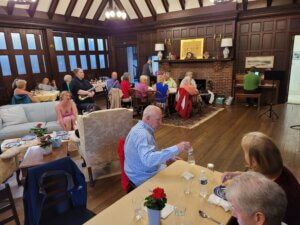 Peacemakers and communities of loving trust are ever more vital in this time of polarization. COVID wasn’t the beginning of our divisions, but it made them worse. For three years, all of our ordinary social interactions were deeply affected. In face of a deadly disease, for everyone’s safety we were separated from one another, even from those closest to us. At Emmanuel, if we felt safe enough to come, we stayed at a distance, covered our faces, refrained from hugging or even shaking hands with one another and scurried home after worship. We suspended our core ministries and social traditions like Soup’s On and potlucks (even Bible study and coffee hour for a while).
Peacemakers and communities of loving trust are ever more vital in this time of polarization. COVID wasn’t the beginning of our divisions, but it made them worse. For three years, all of our ordinary social interactions were deeply affected. In face of a deadly disease, for everyone’s safety we were separated from one another, even from those closest to us. At Emmanuel, if we felt safe enough to come, we stayed at a distance, covered our faces, refrained from hugging or even shaking hands with one another and scurried home after worship. We suspended our core ministries and social traditions like Soup’s On and potlucks (even Bible study and coffee hour for a while).
If we multiply the damage to relationships of that rupture by the many millions of communities and organizations all over the country–in schools, sports, visual and performing arts, social clubs and groups, scouts, etc.–we can begin to see how much the fabric of American society has been harmed and how patiently we need to attend to its healing. Though the lethal Covid threat has largely receded—God willing—the damage from that period lingers, everywhere. At Emmanuel, we are blessed to be a fundamentally healthy body. The social muscles we had as individuals and as a congregation did atrophy from lack of use. Now, thank God, we are rebuilding them.
But what about the millions of people who have no loving community to go to?
“Nones”
Washington Post op-ed columnist Perry Bacon wrote a heart-rending plea for that last week. He had always been an active churchgoer. Before COVID he was slowly drifting away from his congregation for a variety of reasons including his doubts about faith. Then his pastor refused to let gay parishioners lead ministries. Hurt and confused by that betrayal of Jesus’ inclusivity, Bacon now puts himself in the ever-growing class of “nones”: people of no faith. But he longs for the weekly companionship that church gave him. He yearns to belong to a community again.
This and every city is filled with people like Perry Bacon, who want to belong, and who don’t know where to start. We can do something about that. We can look around us and take the risk of reaching out not only to invite, but to bring someone to church. Think of it as ministry: it is. Let’s develop that muscle.
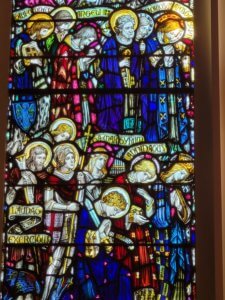 Emmanuel Church is a beautiful place and a treasure house of relationships, built over decades, generations. We can help reknit the fabric of our society and rebuild the sense of trust in Newport and beyond if we share the gift of belonging to this community of love and service.
Emmanuel Church is a beautiful place and a treasure house of relationships, built over decades, generations. We can help reknit the fabric of our society and rebuild the sense of trust in Newport and beyond if we share the gift of belonging to this community of love and service.
With God’s help, let it be so.
